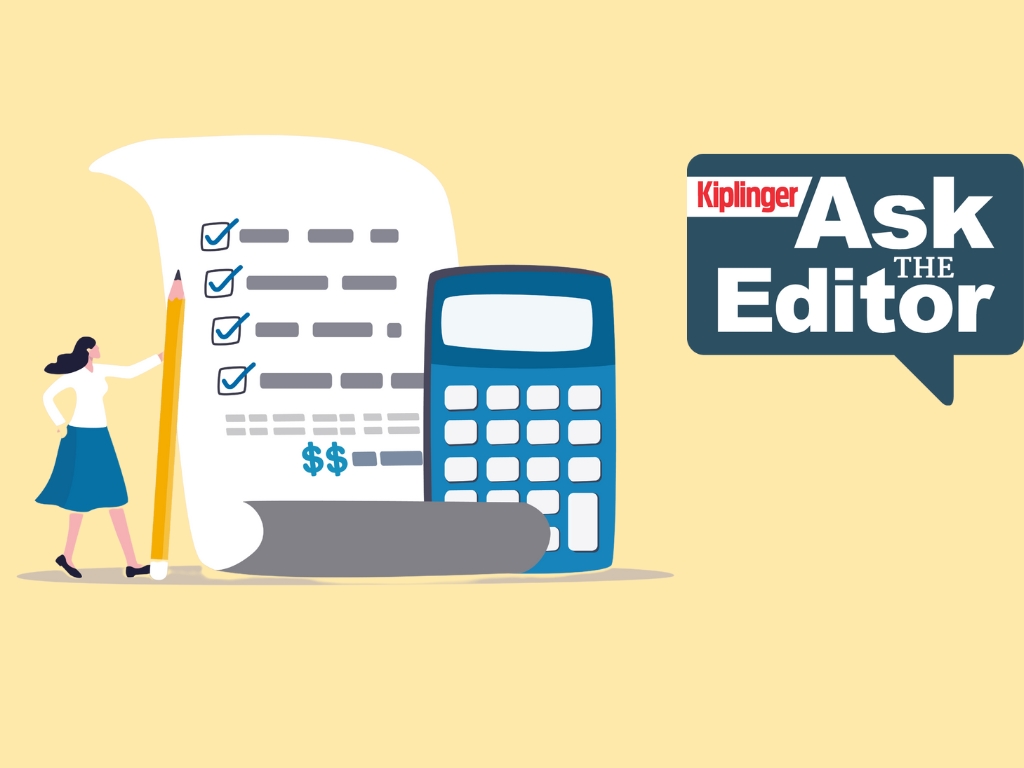5 Things Affluent Retirees Should Do Now that the SECURE Act Has Passed
Here are some ways to take advantage of provisions that are beneficial, and mitigate those that aren't.


If you’ve turned on CNN, Fox News or MSNBC in the last three months, most of the headlines you’ve seen focused on impeachment, the trade war and Rudy Giuliani. It’s reminiscent of Groundhog Day. What have you not seen? The passage of the “Setting Every Community Up for Retirement Enhancement Act.” Not because of the mouthful it is, but because the SECURE Act was attached to an appropriations bill that was rushed through both houses to prevent another government shutdown.
What’s clear to anyone who has been paying attention is that there are wide-reaching planning implications that will affect different communities in different ways. Also clear: The new law will not “enhance” everyone’s retirement.
Below is advice for retirees and those who are about to retire with what should be enough resources to last through their golden years.

Sign up for Kiplinger’s Free E-Newsletters
Profit and prosper with the best of expert advice on investing, taxes, retirement, personal finance and more - straight to your e-mail.
Profit and prosper with the best of expert advice - straight to your e-mail.
1. Delay distributions from your IRA, if you can.
Required minimum distributions (RMD) are essentially the tax goalie for the IRS. After decades of deferring taxes on income earned, the Treasury wants its cut. Hence, at age 70½ you are required to distribute 3.65% of pre-tax retirement accounts. That money will show up on Line 4 of your 1040 and be taxed as income. This has long been loathed by affluent investors who don’t need the money but see their tax rate spike at 70, due to these distributions, paired with Social Security income.
Starting on Jan. 1, 2020, the 70½ RMD rule is changing. The SECURE Act delays distributions for everyone born on July 1, 1949, or later, to age 72. If you are not 70½ in 2019, you will fall under the new RMD rules. Why raise the age? People are living longer. The idea behind the RMD tables is that you can take out the required amount annually and not run out of money. This is debatable. People living longer lives is not.
2. Continue to save … but maybe not into an IRA.
Under previous legislation, you could save into a Roth IRA but not a traditional IRA after age 70½. Because there are income limitations on Roth IRAs, it meant that some people could not save into either type once they hit the age limit. Thanks to the SECURE Act, however, age limits are now gone for both traditional and Roth IRAs.
The headlines and previous few sentences would lead you to believe that you should now be saving into a traditional IRA. While it may make sense, you still need earned income and, post-retirement, that often gets reported on a Schedule C: self-employment income. If you are self-employed, the contribution limits are typically much higher for a solo 401(k), so it could be a better choice than an IRA. Essentially, a solo 401(k) is a 401(k) that you are setting up for yourself. You’ll take the deduction on Line 8a of the 1040, just as you did with the IRA — it just may be bigger.
For retirees, this reduces your modified adjusted gross income. That could reduce capital gains, Medicare Part B premiums and, therefore, give your Social Security a boost. Merry Christmas!
3. Consider paying taxes before your kids get your IRA.
Stretching an IRA allowed IRA beneficiaries to spread distributions over their own life expectancy. This resulted in smaller distributions and thus a smaller tax bite. Early in my career, I encountered a 20-year-old who inherited a $1 million IRA. He had a first-year distribution of $15,873. Under the SECURE Act’s new rules, that distribution can only be spread over a maximum of 10 years, which would have meant a $100,000 first-year distribution for that 20-year-old. That would bump him into a 24% marginal federal tax bracket without considering any other income.
One way to “pre-pay” your taxes is to do a partial Roth conversion. This means moving the money from a traditional IRA to a Roth IRA and taking a hit in this year. This typically makes sense if your current rate is lower than your or your kids’ future rate. When you pair the SECURE Act with the Tax Cuts and Jobs Act, that is a more likely scenario.
4. Talk to your financial planner and/or tax adviser.
The SECURE Act is the largest legislative change in retirement rules since the Pension Protection Act of 2006. Theoretically, the people advising you on retirement will be well-informed and can look at your situation individually to tell you what would make the most sense. Given the previous example of Roth conversions, you would have to do forward-looking tax projections to determine if your future rates are likely to go up or down. If you think they are going to go down, the Roth conversion is the last thing you want to do. You would look for any way to minimize current taxes, which would bring you back up to strategy No. 2.
5. Revisit your estate plan.
This one is also tied to the elimination of the “stretch provision” for traditional IRAs. If you can’t spread a tax hit over your non-spouse beneficiaries’ lifetime, you may want to change your beneficiaries.
Generally, married folks will name their spouse as the primary beneficiary and kids or a trust as a contingent. This legislation means it may make sense for the primary to be split between your spouse and kids. Therefore, the kids will start taking smaller distributions at the death of the first parent and then will start the second half at the death of the second parent. As a result, they are stretching their distribution for up to twice as long and will pay less in taxes.
For reasons too complex for the scope of this piece, if you have a trust as the beneficiary of an IRA, you’ll need to talk to your legal adviser. Trusts may need to be rewritten to comply with new rules.
In conclusion, this new law is a big deal. The SECURE Act comes with 29 new provisions or rule changes. It is very unlikely that you won’t have to change anything. The worst thing the professionals you work with can do is sit on their hands as you live through your retirement and they coast toward theirs.
Profit and prosper with the best of Kiplinger's advice on investing, taxes, retirement, personal finance and much more. Delivered daily. Enter your email in the box and click Sign Me Up.

After graduating from the University of Delaware and Georgetown University, I pursued a career in financial planning. At age 26, I earned my CERTIFIED FINANCIAL PLANNER™ certification. I also hold the IRS Enrolled Agent license, which allows for a unique approach to planning that can be beneficial to retirees and those selling their businesses, who are eager to minimize lifetime taxes and maximize income.
-
 Cord Cutting Could Help You Save Over $10,000 in 10 Years
Cord Cutting Could Help You Save Over $10,000 in 10 YearsHow cutting the cord can save you money and how those savings can grow over time.
-
 The '8-Year Rule of Social Security' — A Retirement Rule
The '8-Year Rule of Social Security' — A Retirement RuleThe '8-Year Rule of Social Security' holds that it's best to be like Ike — Eisenhower, that is. The five-star General knew a thing or two about good timing.
-
 You Were Planning to Retire This Year: Should You Go Ahead?
You Were Planning to Retire This Year: Should You Go Ahead?If the economic climate is making you doubt whether you should retire this year, these three questions will help you make up your mind.
-
 Are You Owed Money Thanks to the SSFA? You Might Need to Do Something to Get It
Are You Owed Money Thanks to the SSFA? You Might Need to Do Something to Get ItThe Social Security Fairness Act removed restrictions on benefits for people with government pensions. If you're one of them, don't leave money on the table. Here's how you can be proactive in claiming what you're due.
-
 From Wills to Wishes: An Expert Guide to Your Estate Planning Playbook
From Wills to Wishes: An Expert Guide to Your Estate Planning PlaybookConsider supplementing your traditional legal documents with this essential road map to guide your loved ones through the emotional and logistical details that will follow your loss.
-
 Your Home + Your IRA = Your Long-Term Care Solution
Your Home + Your IRA = Your Long-Term Care SolutionIf you're worried that long-term care costs will drain your retirement savings, consider a personalized retirement plan that could solve your problem.
-
 I'm a Financial Planner: Retirees Should Never Do These Four Things in a Recession
I'm a Financial Planner: Retirees Should Never Do These Four Things in a RecessionRecessions are scary business, especially for retirees. They can scare even the most prepared folks into making bad moves — like these.
-
 A Retirement Planner's Advice for Taking the Guesswork Out of Income Planning
A Retirement Planner's Advice for Taking the Guesswork Out of Income PlanningOnce you've saved for retirement, you'll need your nest egg to support you for as many as 30 years. For that, you need a clear income strategy, not guesswork.
-
 Ask the Editor, June 27: Tax Questions on Disaster Losses, IRAs
Ask the Editor, June 27: Tax Questions on Disaster Losses, IRAsAsk the Editor In this week's Ask the Editor Q&A, we answer tax questions from readers on paper checks, hurricane losses, IRAs and timeshares.
-
 Why Smart Retirees Are Ditching Traditional Financial Plans
Why Smart Retirees Are Ditching Traditional Financial PlansFinancial plans based purely on growth, like the 60/40 portfolio, are built for a different era. Today’s retirees need plans based on real-life risks and goals and that feature these four elements.